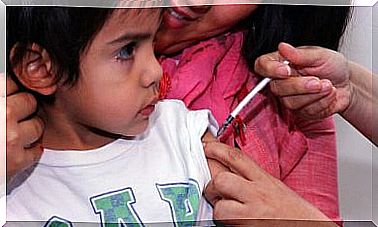Galactosemia, A Rare Disease That Affects Babies

What is this rare disease about? Galactosemia, or galactose in the blood, is an inherited genetic disorder and the baby with it has a gut that is unable to metabolize simple sugar or galactose (a by-product of lactose digestion) into glucose (a source of energy for the body ), which causes an accumulation of galactose in the blood. This leads to a series of injuries and infections in your body.
In healthy babies, this monosaccharide is metabolized through a series of enzymatic reactions and fulfills its function of being an energy source for your child.
This rare disease, which suffers from one in every 40,000 babies, must be diagnosed as soon as possible because, if it is not treated during the first days of life, it can imply irreversible problems for their health.
Milk contains lactose, a disaccharide formed by the union of a molecule of glucose and another of galactose. In the present case, galactosemia consists of an adverse reaction to galactose, a monosaccharide which, if not metabolized, produces alert symptoms in the newborn.
People with galactosemia are deficient in three enzymes involved in the metabolism of galactose: uridyl transferase, galactokinase, or epimerase . This deficiency leads to the accumulation of galactose in the blood.
This genetic condition makes the child’s body unable to metabolize galactose due to a pathology that is inherited from both parents, who may or may not have some indication of this problem.
Testing and attending to symptoms will change your life

To know if our baby suffers from galactosemia or not, we must be attentive before and after the birth of our child because, if it is detected in time, you will have nothing to regret.
- Prenatal tests may be done to check for galactosemia
- At 72 hours of birth, through the “heel prick test”
- Later it is diagnosed by chromatography of sugars in urine after administration of galactose in the diet.
- Warning symptoms are that the baby has convulsions, is irritable, remains lethargic (difficulty waking up), vomits constantly, does not gain weight, refuses to take formula containing milk, and has yellowish skin
- If bleeding occurs and difficulty in stopping the bleeding, in case of injuries, there may be liver failure leading to galactosemia. Severe infections occur
- Cataracts are common, even in the first weeks of life
- If galactosemia remains undiagnosed, if not fatal, it causes learning problems and language delay
- In adulthood, galactosemia causes hypogonadism (poor genital development), ovarian failure, short stature, tremors, and other neurological disorders.
Types of galactosemia

In the Genetics and Biochemistry Bulletin of the Institute of Inborn Errors of Metabolism IEIM of the Faculty of Sciences of the Pontificia Universidad Javeriana, dedicated to Galactosemias, Dr. Alberto Hernández Sáenz, pediatrician and pioneer in the diagnosis of this disease in Colombia, explains that “in untreated children, it can be severe, sometimes fatal; its diagnosis is relatively simple and its treatment is very simple and effective ”.
Galactosemia was described for the first time in Colombia by Hernández Sáenz in 1983 : “In a three-month-old patient, in whom it was possible to stop most of the sequelae of the disease. Early detection gives excellent results ”.
As we saw previously, the deficiency of any of the three enzymes involved in the metabolism of galactose leads to the appearance of the disease that can be: Galactosemia due to uridyl transferase or epimerase deficiency that generally leads to starvation, failure in development , vomiting, liver damage and mental retardation.
Meanwhile, galactosemia due to galactokinase deficiency is attenuated and manifests itself mainly in the form of cataracts.
According to Hernández, if galactosemia is suspected, a urine reducing sugar test should be ordered. “In the laboratory, thin-layer chromatography is then performed to identify galactose in urine and, if this is positive, enzymatic analyzes are carried out to define what galactosemia it is.”
The specialist assures that early treatment produces very good results with respect to the intellectual development and personality of the infant.









